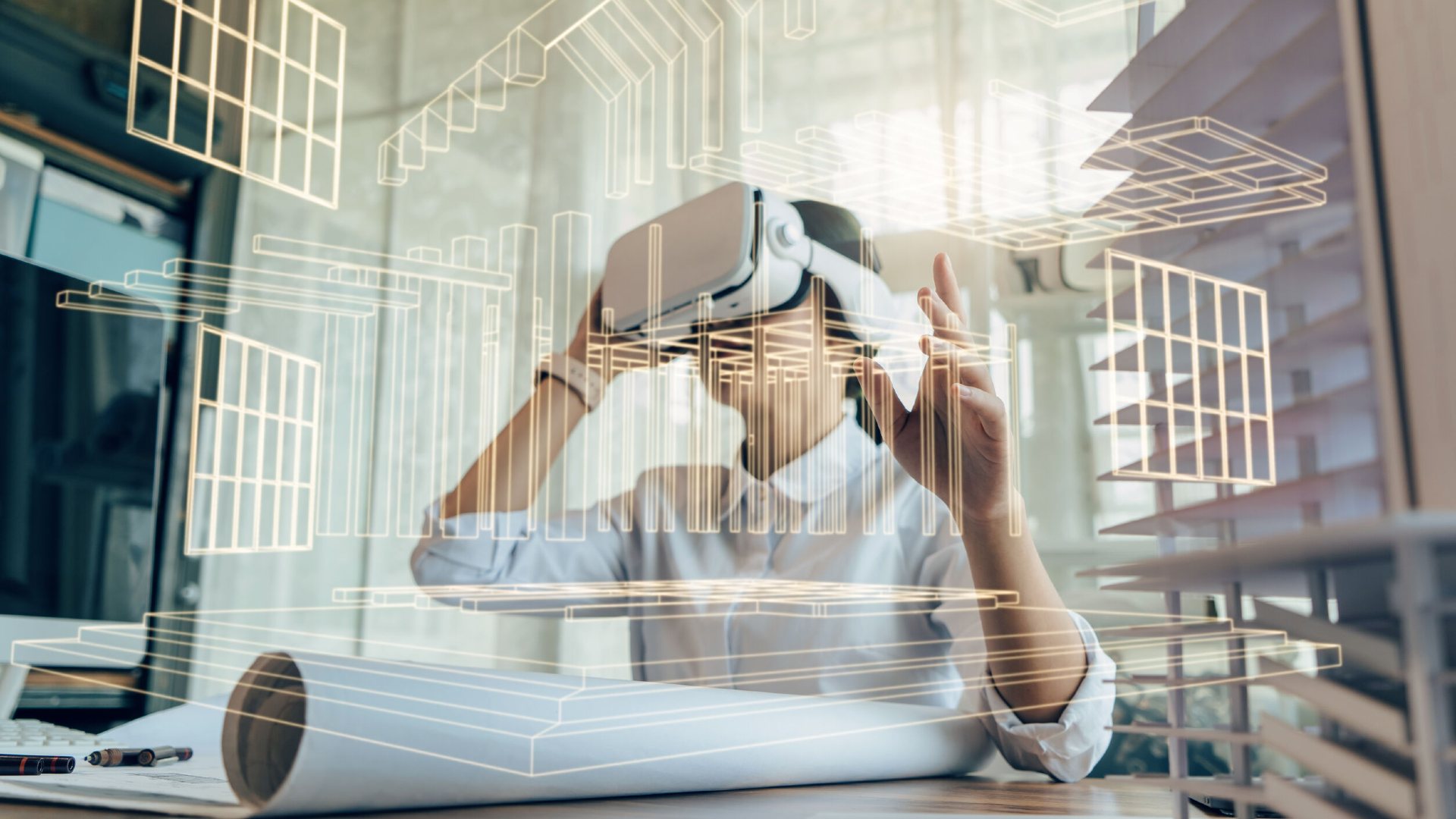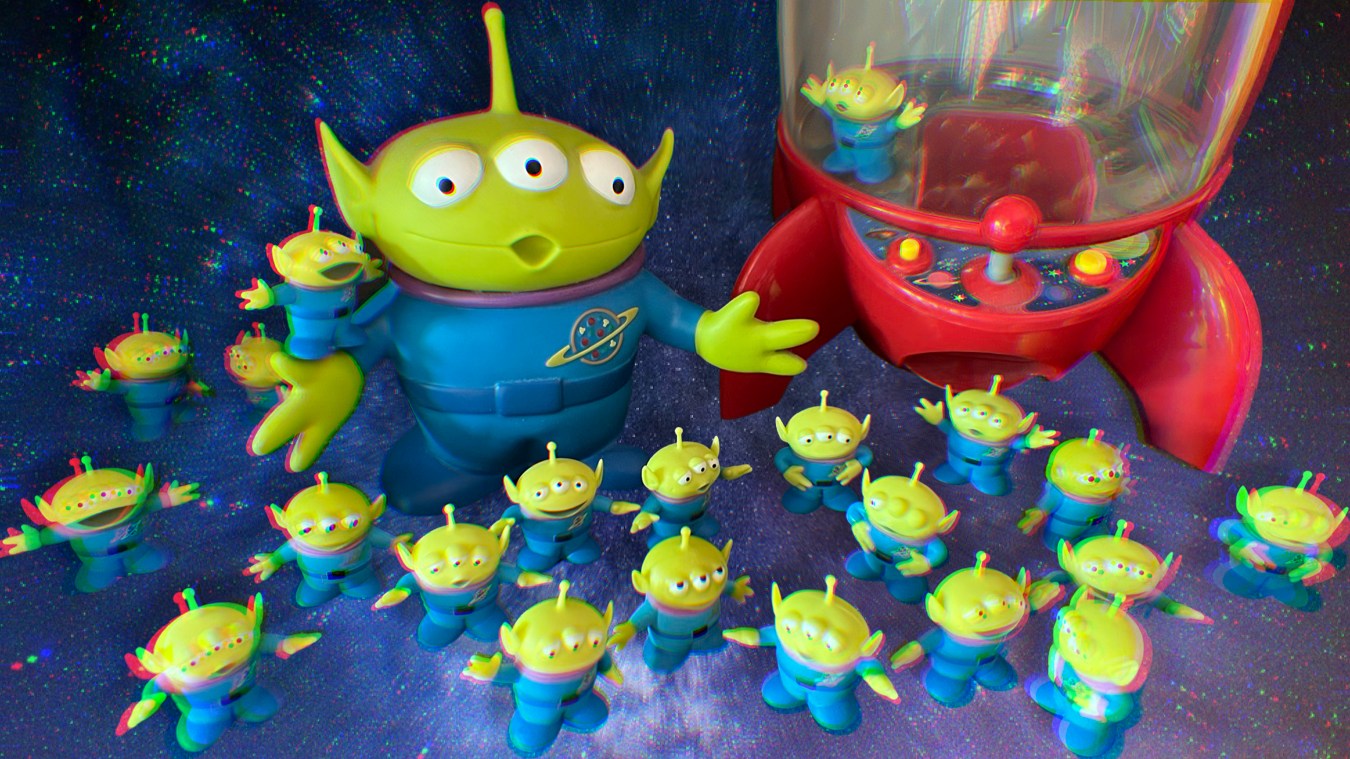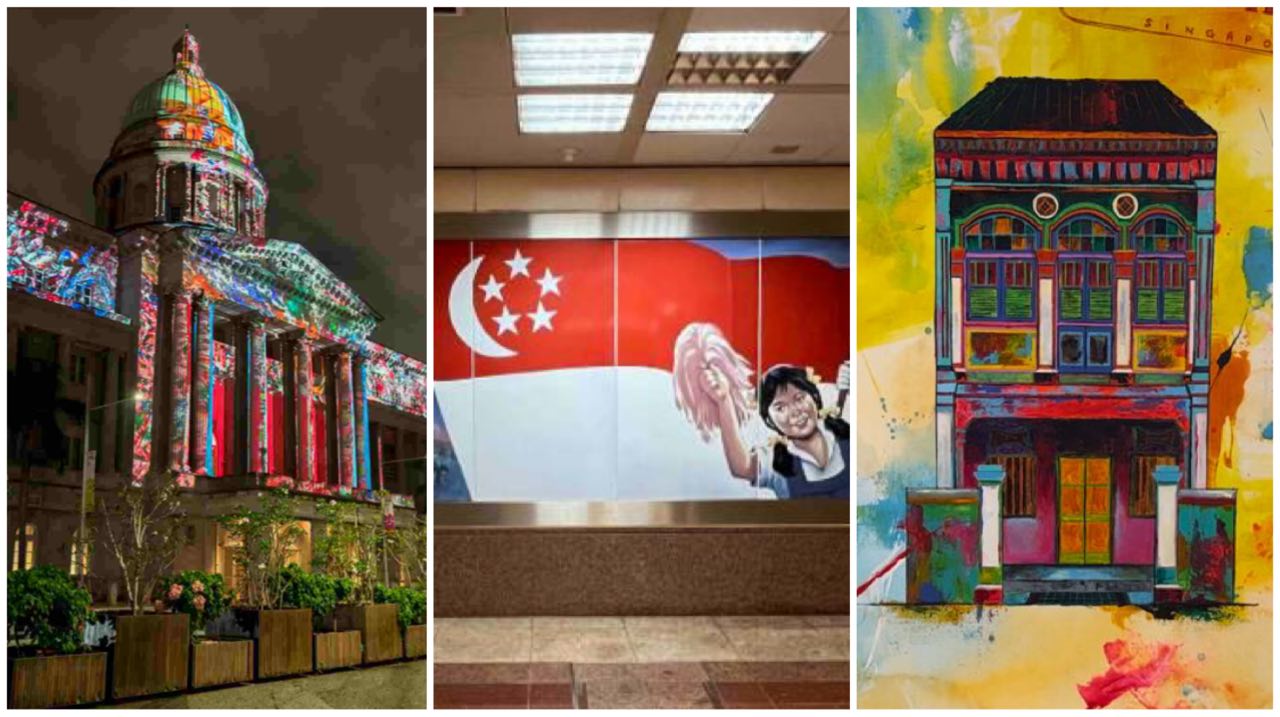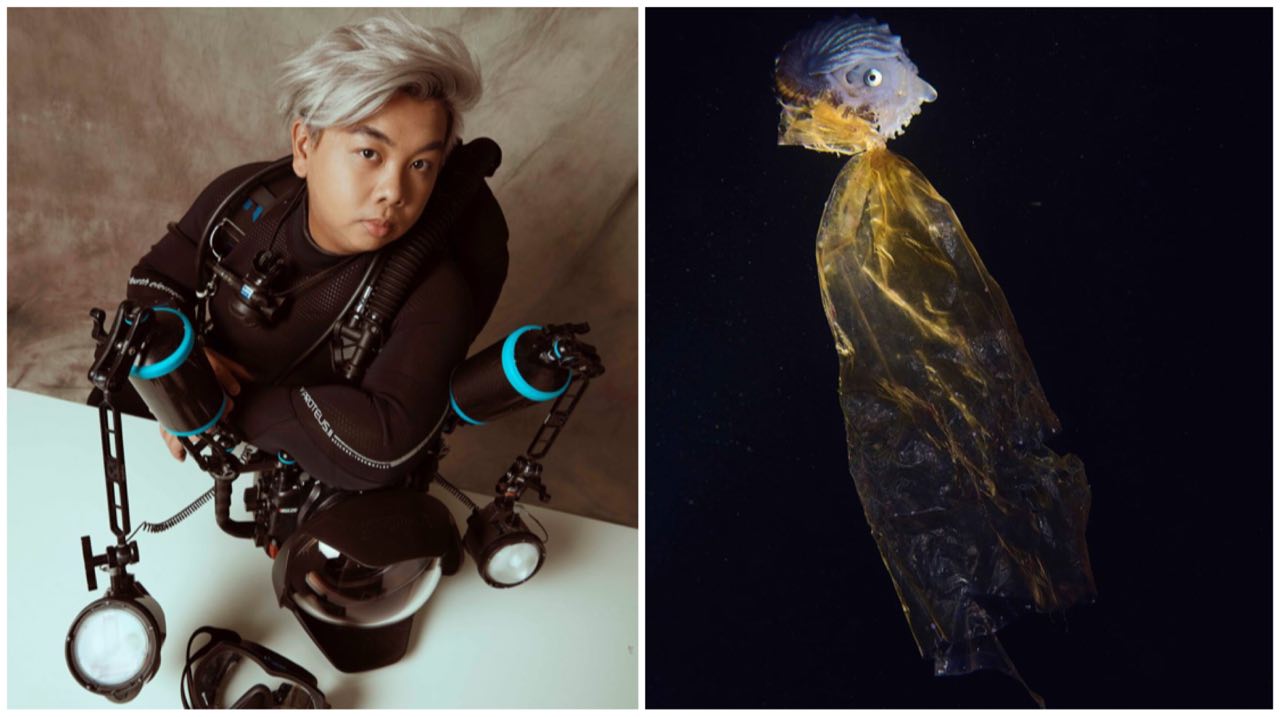The Sims IRL: New VR Software Lets You Design Your Dream HDB Home
The Sims video game was our first exposure to building a home – buying and arranging furniture to create the ideal place we would want to live in, in the future.
Look at how far we've come: now you can do the same with an actual HDB flat, and be able to walk around your dream interior... using virtual reality (VR).
We recently checked out Lotus VR, a VR software being developed by homegrown company Luucid, co-founded by CEO Muzhaffa Kamal, 35, and CMO Muhammad Fauzi, 36.
The duo met a few years ago when they were working at Shell Singapore. At that point of time, Muzhaffa was running Locallads (a general contractor), and Fauzi, The Colour Cure (painting services).
Through their frequent discussions about their experiences running their respective businesses, they realised they had much in common and similar goals. This led to a decision to join forces, and go into business together, which led to the birth of Luucid, and software products like Lotus VR.
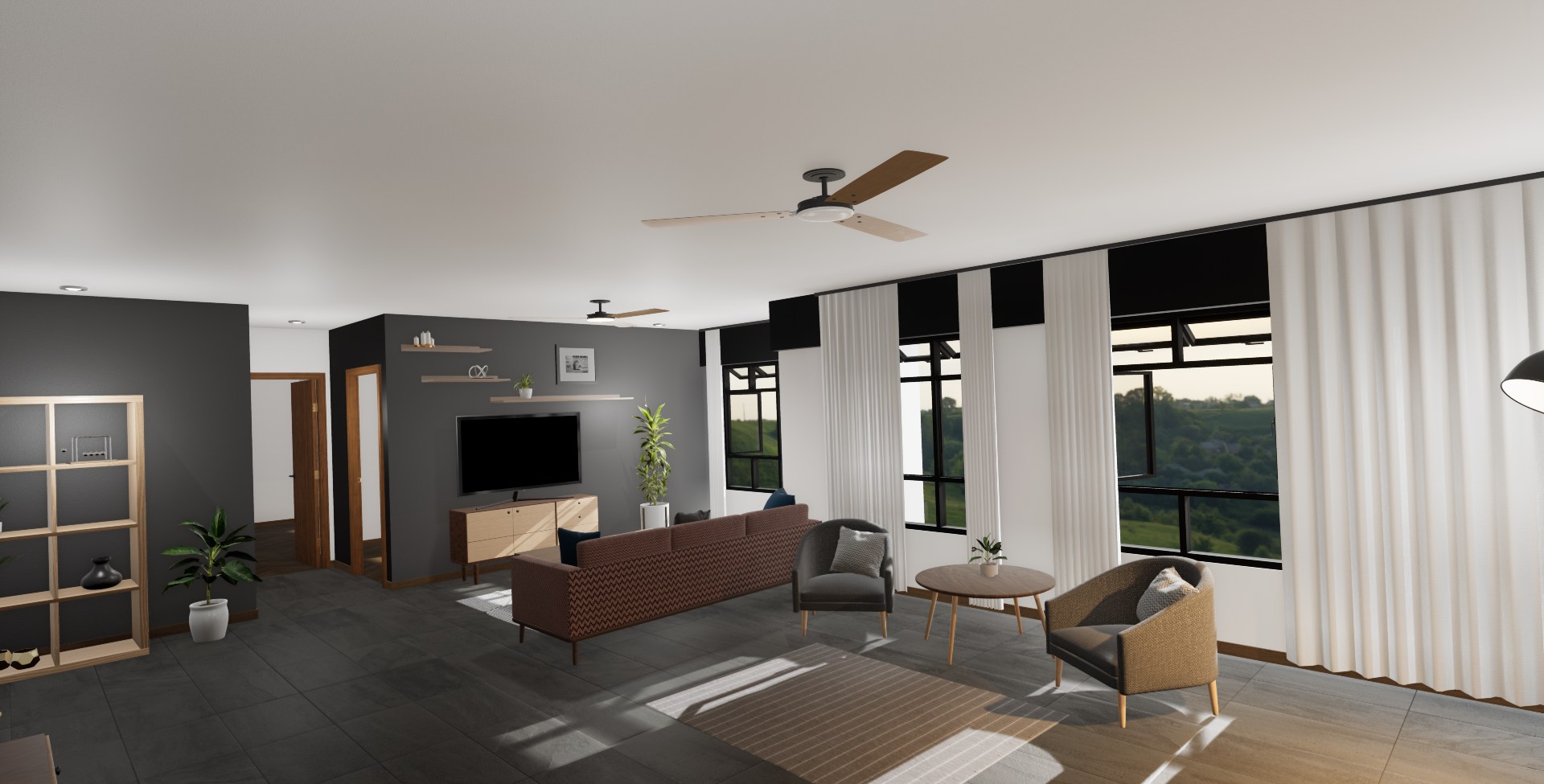
How Lotus VR works:
- The software creates a 3D model of your home using your floor plan.
- Customise the space however you wish. You can even "hack" the walls!
- Actual furniture and furnishings are recreated in the VR space.
- Once you’re happy with how your dream home looks, Lotus VR will automatically calculate the cost for your renovations.
The best part: Less lengthy back-and-forth consultations with interior designers. The ID creates a design with the software, and you can enter the VR space to make changes as you please. Plus, it is way easier to visualise something when you can see it right in front of you.
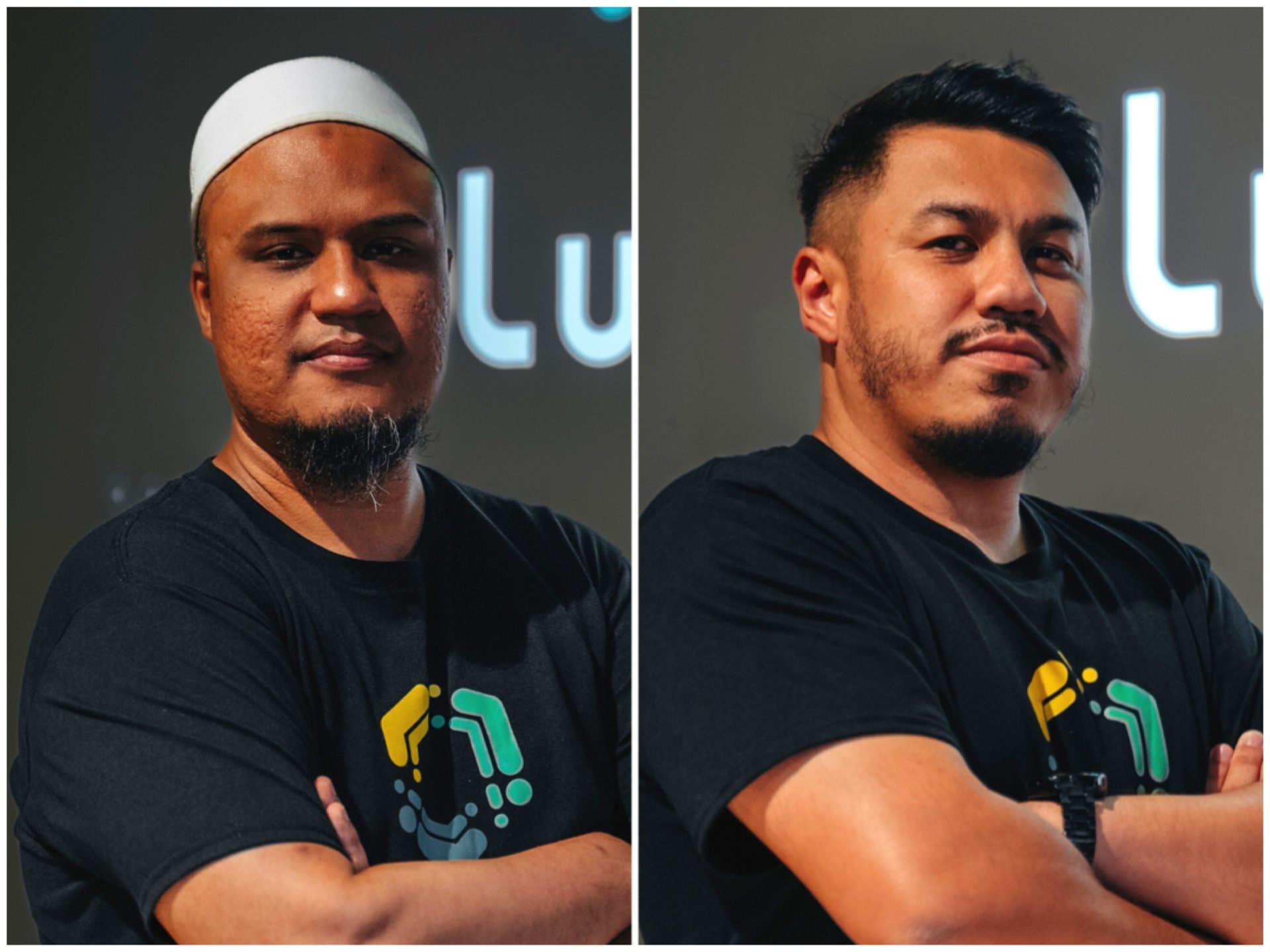
“The industry is in need of innovations to alleviate the burden on interior designers while empowering property owners, and we believe leveraging on VR technology will be a huge game changer,” says Muzhaffa, who is also the owner of interior design company Whiteboard Associates, and has worked in the property industry for 12 years in construction and as a consultant project manager.
Fun "hormat national service" fact about Luucid's co-founders: both Muzhaffa and Fauzi have NS to thank for their resilience, persistence and ability to work well under pressure. Muzhaffa, a Platoon Commander who then became a Battalion Operations Officer, currently holds the rank of CPT (NS).
"I picked up leadership and organisational skills during NS and this has helped me not just in the property industry but also in building up our companies' portfolios from scratch to what it is today," says Muzhaffa.
Meanwhile, Fauzi recalls being posted to the Basic Section Leader Course for three months to get an in-depth understanding of weapon technical handling and to pick up leadership skills to lead a platoon. His level of fitness shot up so much so that he was one of the few elected to be posted to the Army Fitness Centre to train to become a Physical Training Instructor (PTI).
"My PTI course was the hardest phase as we had endure daily physical exercises that pushed our body and mind to their limits while staying composed in the face of adversity," says Fauzi.
"Looking back, it was an experience that accustomed my mind to withstanding pressure in difficult moments, and to believe that, surely, after every difficulty comes success. This has been helpful in my career in property as we have to deal with tight deadlines and demanding customers constantly."
Speaking of tight deadlines, we ask Muzhaffa excitedly about when we can expect to see Lotus VR or download it for ourselves, plus the inspiration behind the software and how it will revolutionise the interior design industry.
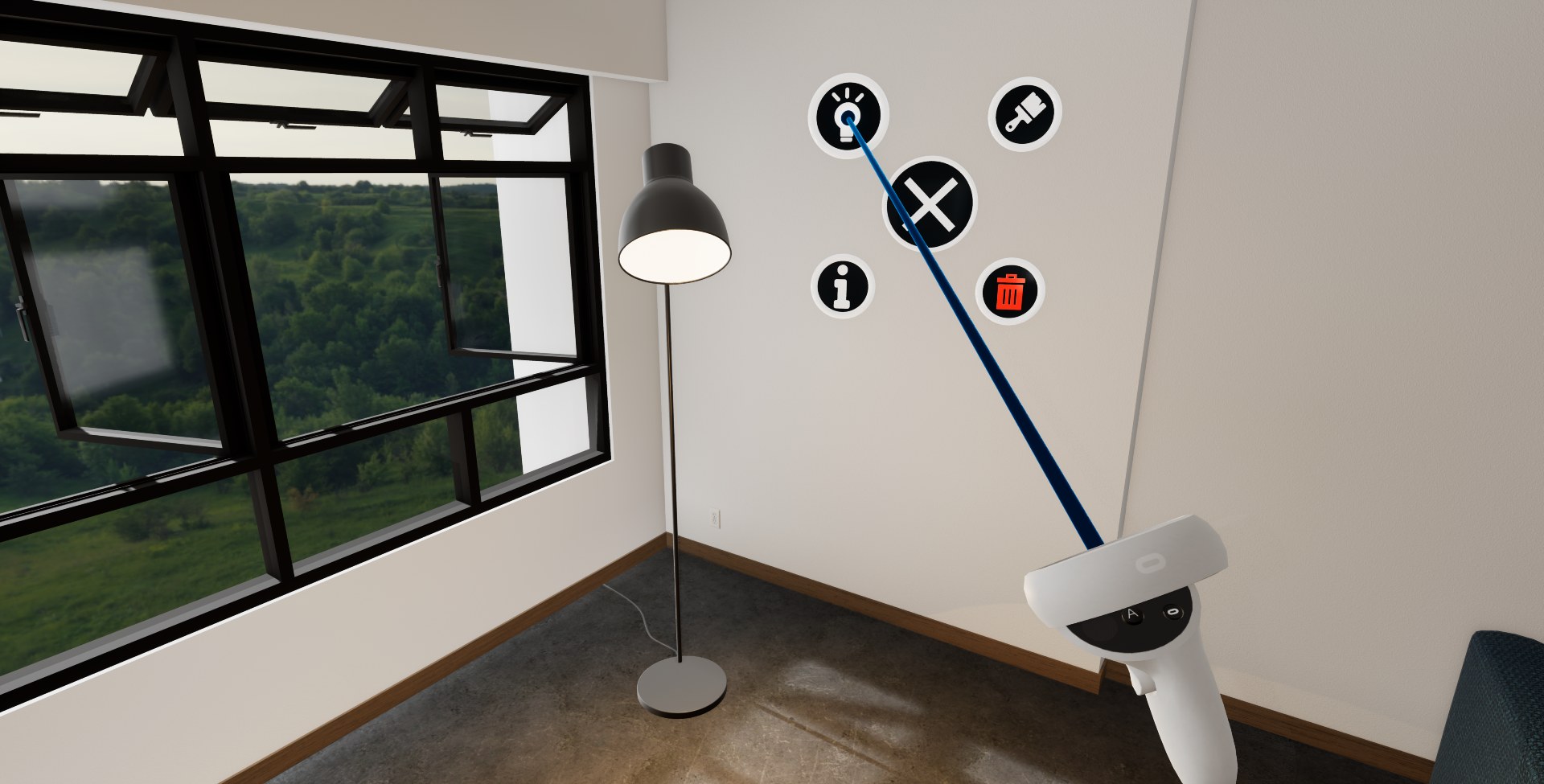
Wow! Our hands-on experience with Lotus VR makes us feel like we're playing The Sims, but in real life. What inspired the development of Lotus VR?
We felt that the interior design industry in Singapore has been stagnant for many years, and needs some injection of innovation. We were exploring how to digitalise the company, ways to drive sustainability, and create new breakthroughs.
We believe in developing efficient systems and processes. We try to implement technology as much as we can in the company. The idea for Lotus VR came while brainstorming, as we have team members who are proficient in software development, and who recognise the possibilities and benefits that VR can potentially provide.
How does Lotus VR streamline the process of working with interior designers?
During the design phase with interior designers, it may take several weeks just to gather information from property owners, coming up with the 3D drawings, sourcing and matching materials, such as making moodboards, and drafting quotations. Additional time is needed if major changes are required.
Lotus VR enables property owners to design, choose and place materials, products and finishings themselves. They can gauge the costs vs their budget within the software. This frees up the interior designer’s time for tasks such as customising specific designs and touching up the final quotation produced by Lotus VR.
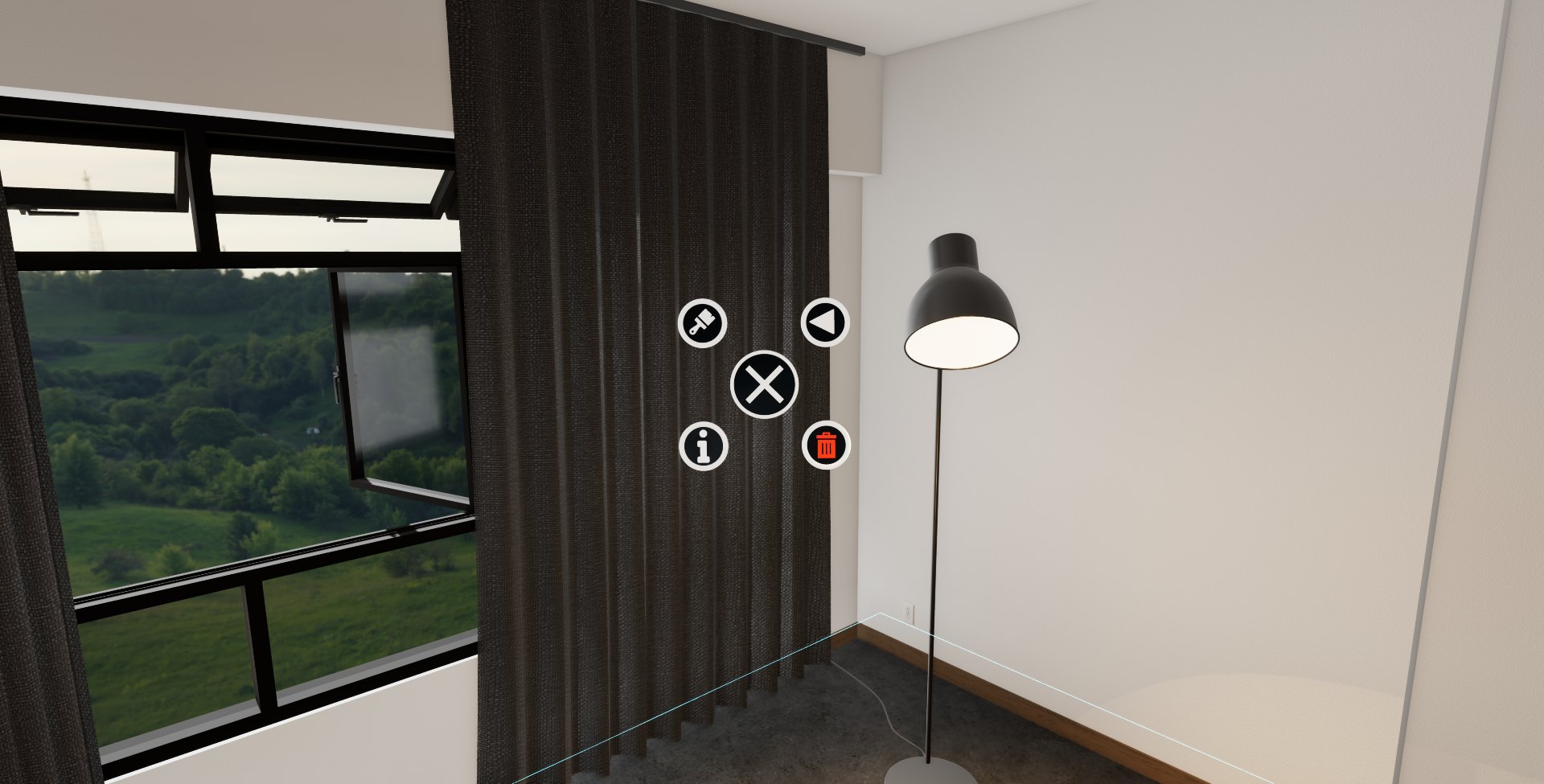
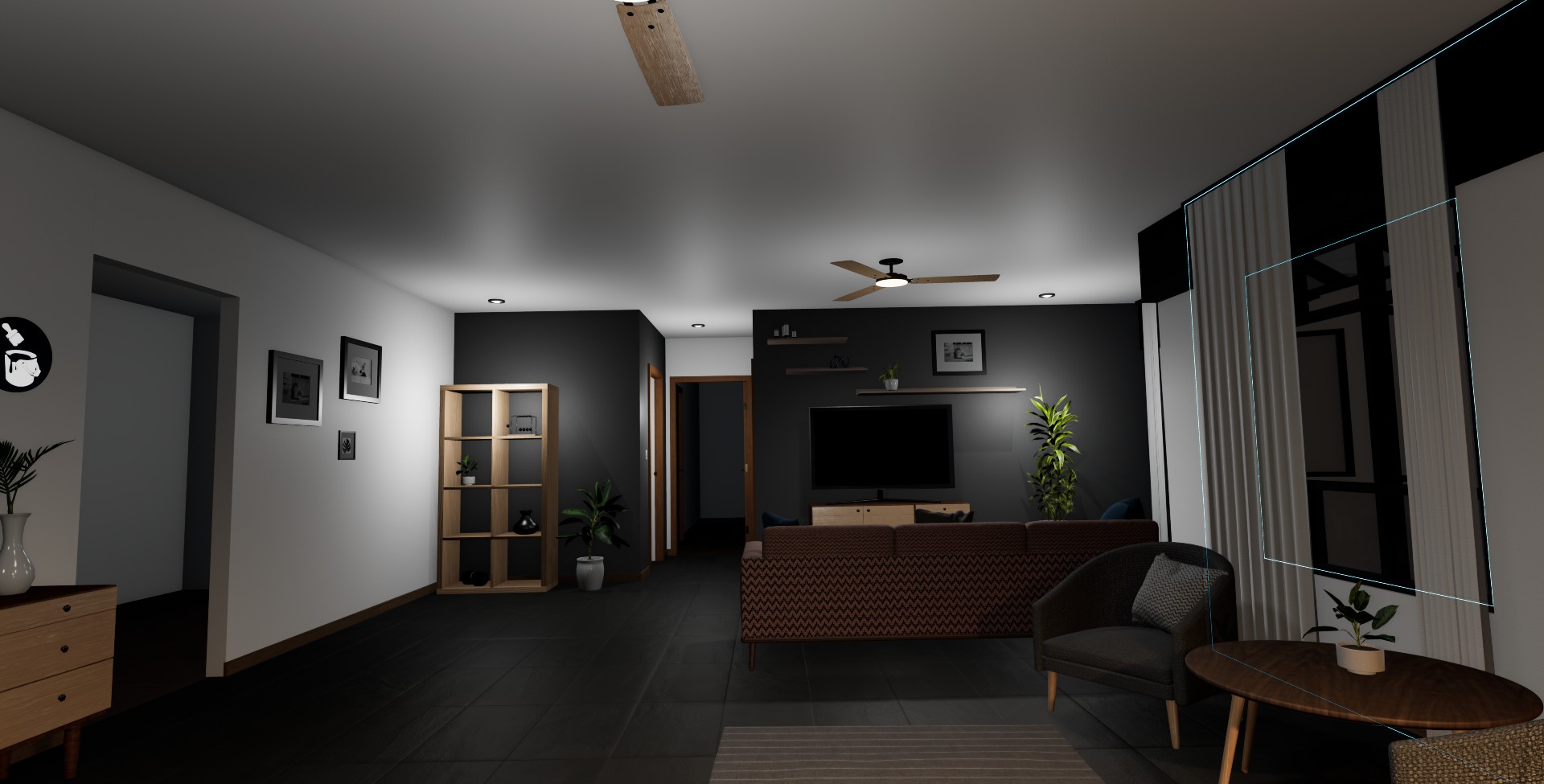
How much did it cost to develop Lotus VR?
We have spent about $40,000 so far on the prototype and require about $1.5 million in future funding to fully develop the VR technology and maintain it for about 1 year.
Lotus VR is still in beta. When can we expect to see it in the hands of interior designers; or will we be able to download it for ourselves if we own a VR set?
We are targeting to launch Lotus VR officially in August 2023. In the first phase, only interior designers will have access to the technology for their clients. There are plans to cater to individual users that have a VR set and wish to own or use Lotus VR.
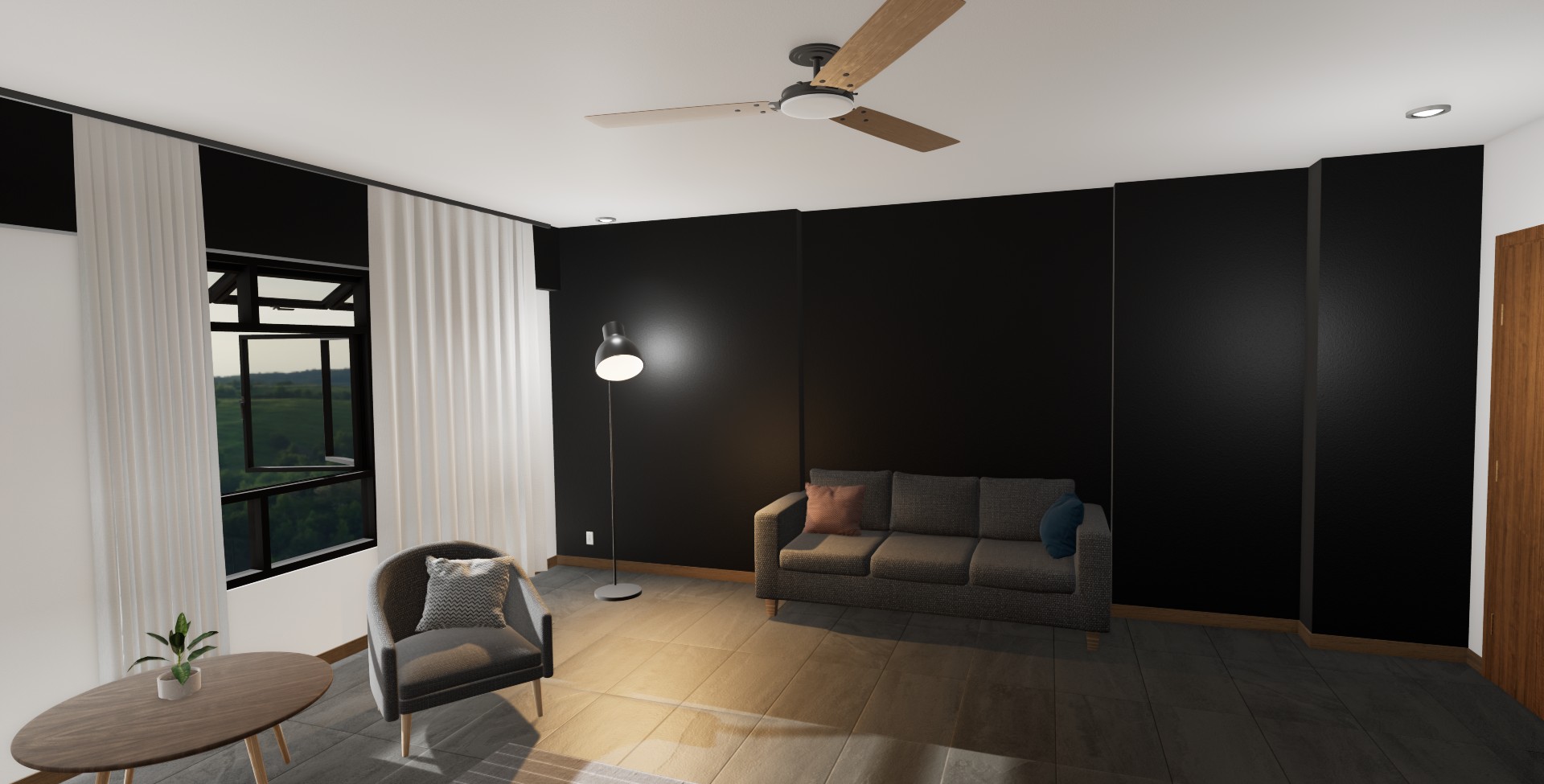
Where else can we expect to see Lotus VR in the future?
We have business acquaintances from overseas that are interested in Lotus VR. We are sure that this VR technology will be universally appreciated and utilised in the near future. Today’s demand is only for B2B, but we foresee the demand for B2C emerging in five to 10 years’ time when more households own a VR set.
As work/study from home continues, users have become more aware of their surroundings and living spaces. They demand greater control over how to utilise and optimise these spaces. Lotus VR plans to be at the forefront of this movement by empowering users with control and freedom.
Lotus VR also hopes to help property realtors move beyond static showrooms and physical viewings so as to provide greater value and options to interested buyers.
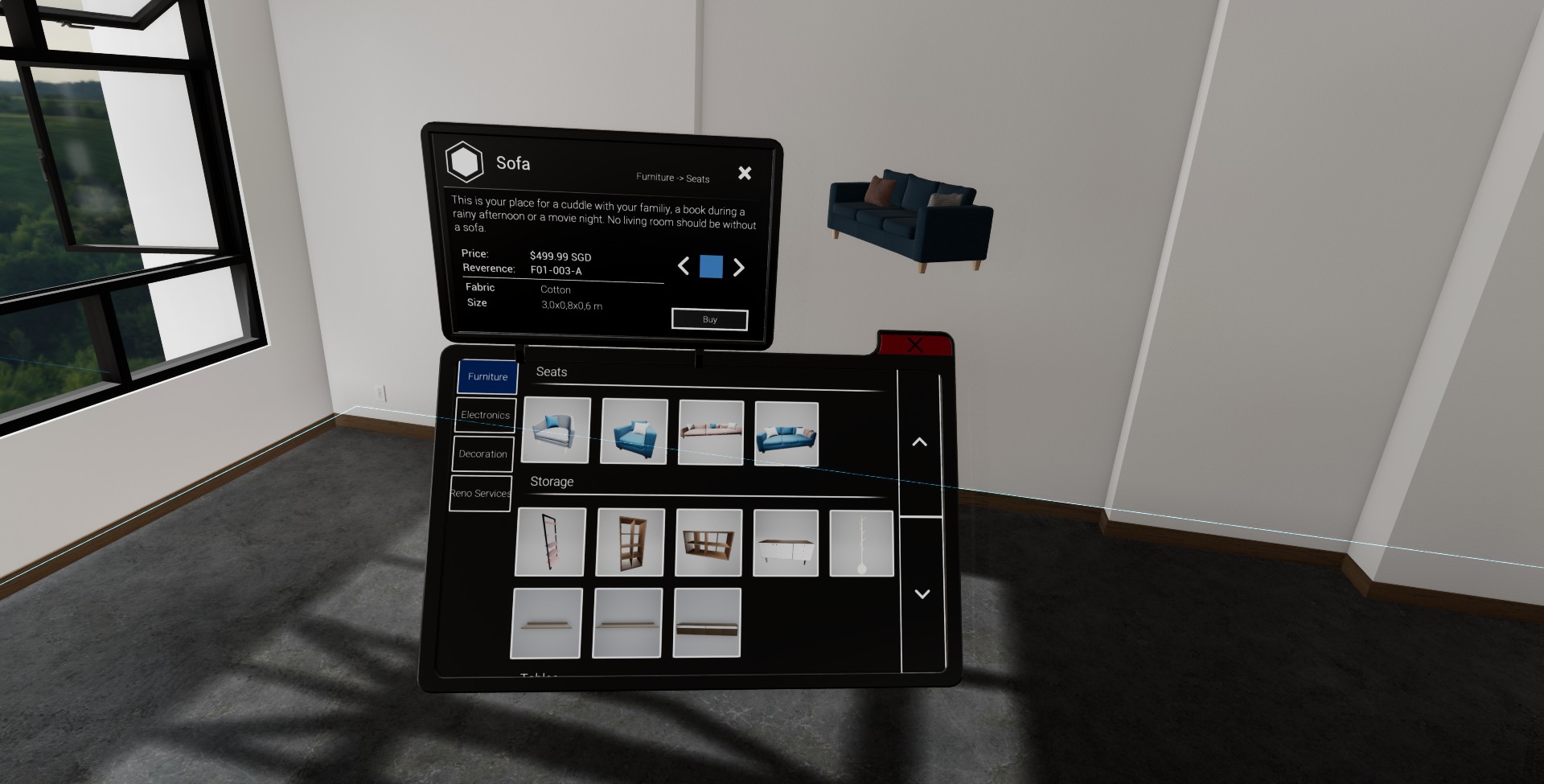
For the latest updates on Wonderwall.sg, be sure to follow us on TikTok, Telegram, Instagram, and Facebook. If you have a story idea for us, email us at [email protected].







